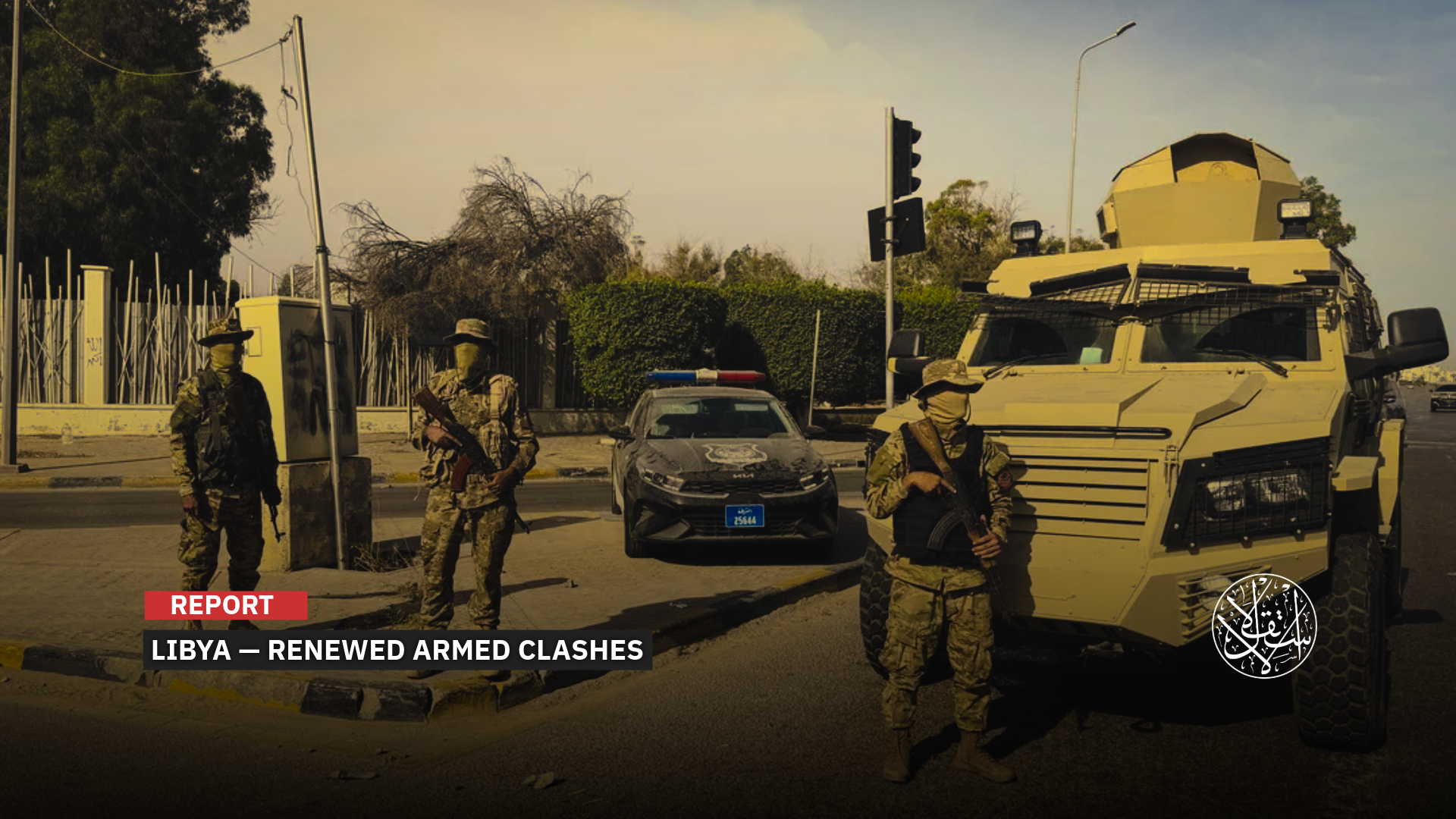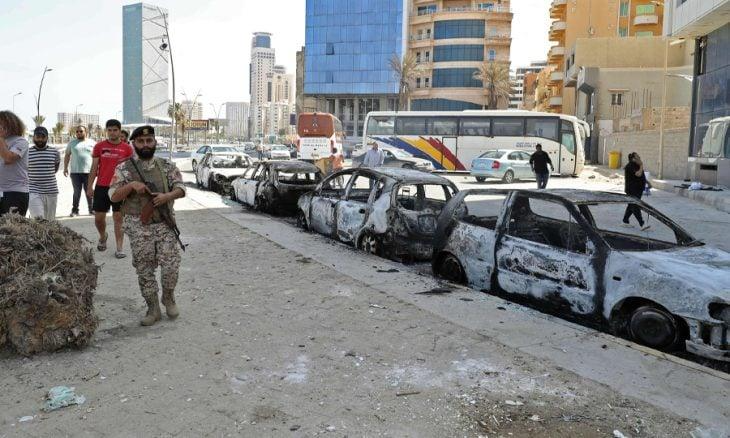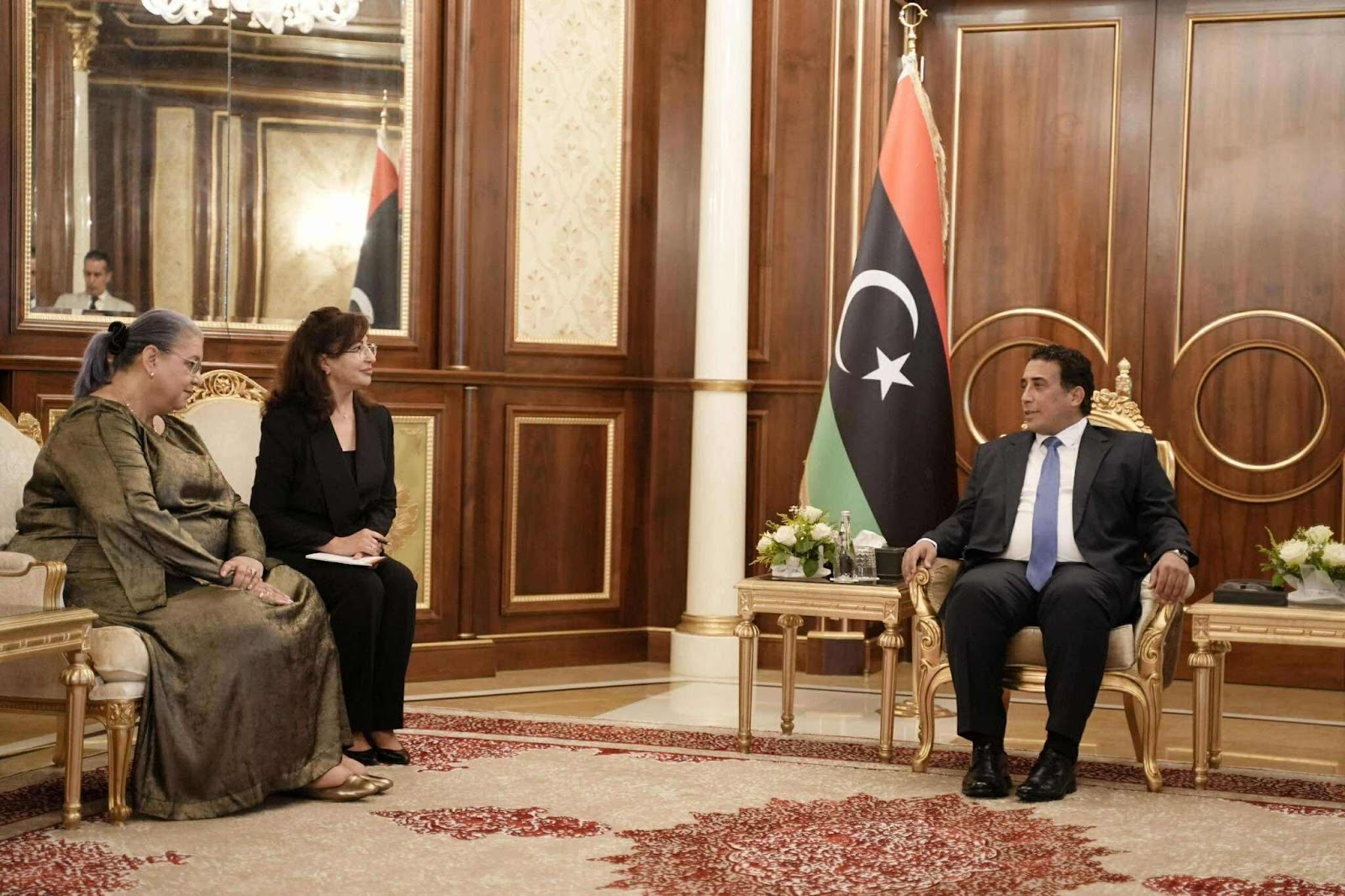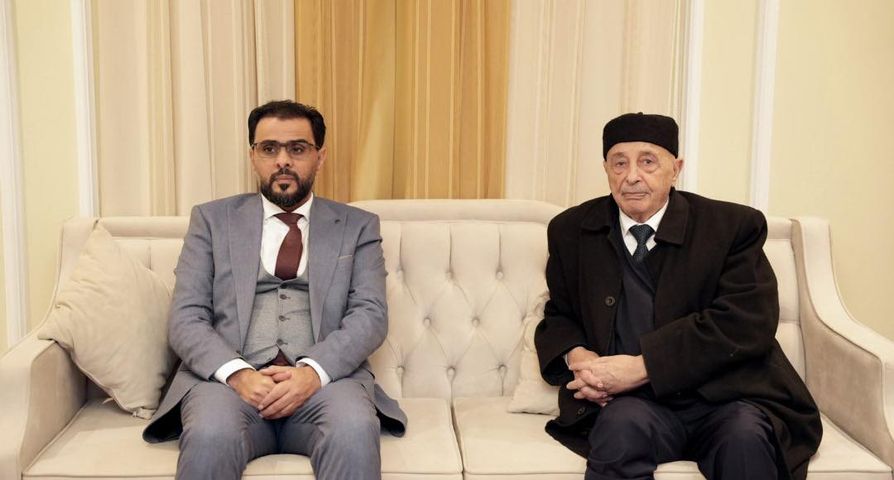Armed Clashes Return to Libya’s Capital Tripoli: Causes and Prospects for Resolution

Forces loyal to the Dbeibah government began sending reinforcements to eastern Tripoli.
Whenever the security situation in the Libyan capital, Tripoli, calms for a while, it quickly slides back into tension and armed clashes, fueling concerns over the country’s fragile stability. In the early hours of September 2025, sporadic fighting broke out south of the capital amid rising friction between armed groups operating around the city.
According to the news site Libya Akhbar, the latest flare-up followed a proposal from Prime Minister Abdul Hamid Debibah’s internationally recognized government that set out seven conditions aimed at reshaping control over Mitiga air base, which is held by the al-Radaa Force. Among the demands were handing over Mitiga prison to the Justice Ministry, ending the group’s authority at Mitiga airport, and transferring administration to the civil aviation authority.
The site reported that forces aligned with Dbeibah, particularly from the city of Misrata, had begun dispatching reinforcements to eastern Tripoli. Meanwhile, media outlets sympathetic to eastern authorities warned that Dbeibah’s moves had sparked anger in neighborhoods such as Souq al-Jum’aa and Tajoura, portraying them as a threat to civil peace and an attempt to impose control by force.
Al-Radaa Force
The origins of the al-Radaa for Countering Terrorism and Organized Crimes trace back to the aftermath of Muammar Gaddafi’s fall in 2012, when it began as a small brigade under the Tripoli Military Council in the Souq al-Jum’aa district.
It later evolved into the Rada Special Deterrence Force within the Interior Ministry, led by Abdelrouf Kara, a Salafist-leaning officer.
In 2018, the Presidential Council of the Government of National Accord restructured the force under a new name, al-Radaa for Countering Terrorism and Organized Crimes, granting it sweeping powers.
Its headquarters is based in the Mitiga complex in northern Tripoli, where it controls the capital’s only functioning civilian airport, as well as the adjoining air base, military hospital, and the Mitiga prison.
The group expanded its influence after clashes in July 2022 with the Tripoli Revolutionaries Brigade, extending its reach from its stronghold in Souq al-Jum’aa and the al-Shat road to central Tripoli, al-Farnaj, and Ain Zara.
Today, the al-Radaa Force controls several of Libya’s most important institutions, including the Central Bank, the National Oil Corporation, state radio and television in Zawiyat al-Dahmani, the Foreign Ministry, Tripoli University, and multiple other ministries and state bodies.

Political Analysis
In his reading of the unfolding events, Libyan political analyst Ibrahim al-Asifer said the latest clashes fall within the security plan launched by the Dbeibah government in April 2025 through the defense and interior ministries, aimed at reasserting state sovereignty and regaining control over key institutions and entry points.
“The proliferation of weapons and armed groups since the fall of Gaddafi in 2011 remains the single biggest obstacle to Libya’s political process and to any form of settlement, whether internal or external,” he told Al-Estiklal.
“The unity government initiated its plan to secure Tripoli with skirmishes that resulted in the killing of Abdelghani al-Kikli, the head of the so-called Stability Support Authority.”
The effort continued with confrontations between government forces and the Special Deterrence Force, which controls Mitiga air base and airport, in what al-Asifer described as an attempt to restore the state’s monopoly over the use of force.
“These militias now pose a threat not only to ordinary Libyans but to the very existence of the state,” he said, noting that they operate outside the authority of the state, the attorney general, or the judiciary. “They have become a state, or rather states, within the state.”
According to al-Asifer, these groups issue and carry out arrest warrants, abduct citizens and officials alike, and hold people in prisons under their control without judicial oversight. Some detainees, he added, have completed their sentences but remain imprisoned, while others have never been formally charged or presented before prosecutors.
He emphasized that militias dominate critical state assets, from seaports to prisons, military camps, and strategic air bases like Mitiga, underscoring the urgency of addressing their power.
International Concerns
The fragile security and political landscape have prompted the UN Support Mission in Libya (UNSMIL) to voice deep concern over rising tensions and ongoing military mobilization.
In a statement on X, the mission urged all sides to continue engaging in presidential council–led talks, approach the remaining issues in good faith, and prioritize the welfare of Tripoli’s civilian population.
The UNSMIL stressed that every human life is precious and warned that renewed conflict would not only endanger Tripoli but could spill into other parts of the country, leading to a war in which everyone loses and civilians bear the greatest risk.
It issued an urgent appeal for all parties to halt escalation, refrain from actions that put civilians in danger, and safeguard both lives and infrastructure under all circumstances.
The UNSMIL also sounded the alarm over the latest security flare-up in Tripoli, urging all parties to avoid actions that could destabilize the capital and calling for the immediate withdrawal of armed forces from residential areas.
In a statement, the mission described the situation as deeply concerning and pressed for disputes to be resolved peacefully through dialogue, with the backing of the UN Support Mission in Libya.
It pledged its readiness to support UN efforts to preserve peace and shield civilians from further suffering and destruction.

Political Reactions
Libya’s Presidential Council Chairman, Mohamed al-Menfi, was quick to respond to the latest security flare-up in Tripoli, stressing the need to uphold the cease-fire in the capital and create conditions for inclusive national dialogue that would safeguard civilians and protect state institutions.
His remarks came during a meeting with a delegation from the Tripoli Central Municipality’s outreach committee, where he underscored the importance of strengthening the rule of law and preventing a slide back into armed conflict.
According to the local outlet Alwasat Newsly, al-Menfi also highlighted the urgency of reviving the political process to meet Libyans’ aspirations for peace and development. Committee members expressed full support for efforts to foster national unity and reject all forms of violence and tension.
In eastern Libya, however, Osama Hammad’s parallel government sharply condemned the military buildup in Tripoli, accusing the UN-recognized Government of National Unity of dragging the capital into chaos and sowing fear among civilians.
Hammad’s administration declared Tripoli’s security a top priority, warning against pushing western city residents into armed clashes that serve only “those clinging to power and profiting from instability.”
Escalating its rhetoric, the eastern government also held the UN Support Mission in Libya fully responsible for the worsening security situation, accusing the international community of “failing to fulfill its duties, foremost among them protecting civilians and preventing the capital’s descent into violence.”

The Path Forward?
Libyan political analyst Ibrahim al-Asifer argues that resolving the current crisis requires a complete end to the presence of armed groups in the country, either by dismantling them or integrating them into the state’s police and military institutions.
“If these groups remain defiant and refuse dialogue or compromise, then a military operation would be necessary to strip them of their centers of power and control, a difficult but unavoidable step,” he said.
“If Libya is to move forward and enter a genuine political process, these groups must be eliminated one way or another.”
He added that in order to stop the recurring clashes and skirmishes in Tripoli, weapons must be monopolized by the state alone.
Allowing militias to persist, he warned, undermines any talk of a future settlement, as it contradicts the very concept of a functioning state.
“These armed groups are not only a threat to the Government of National Unity but also to the spirit of the state, its institutions, and the rule of law, making it imperative to put an end to them for the sake of the country’s future.”









